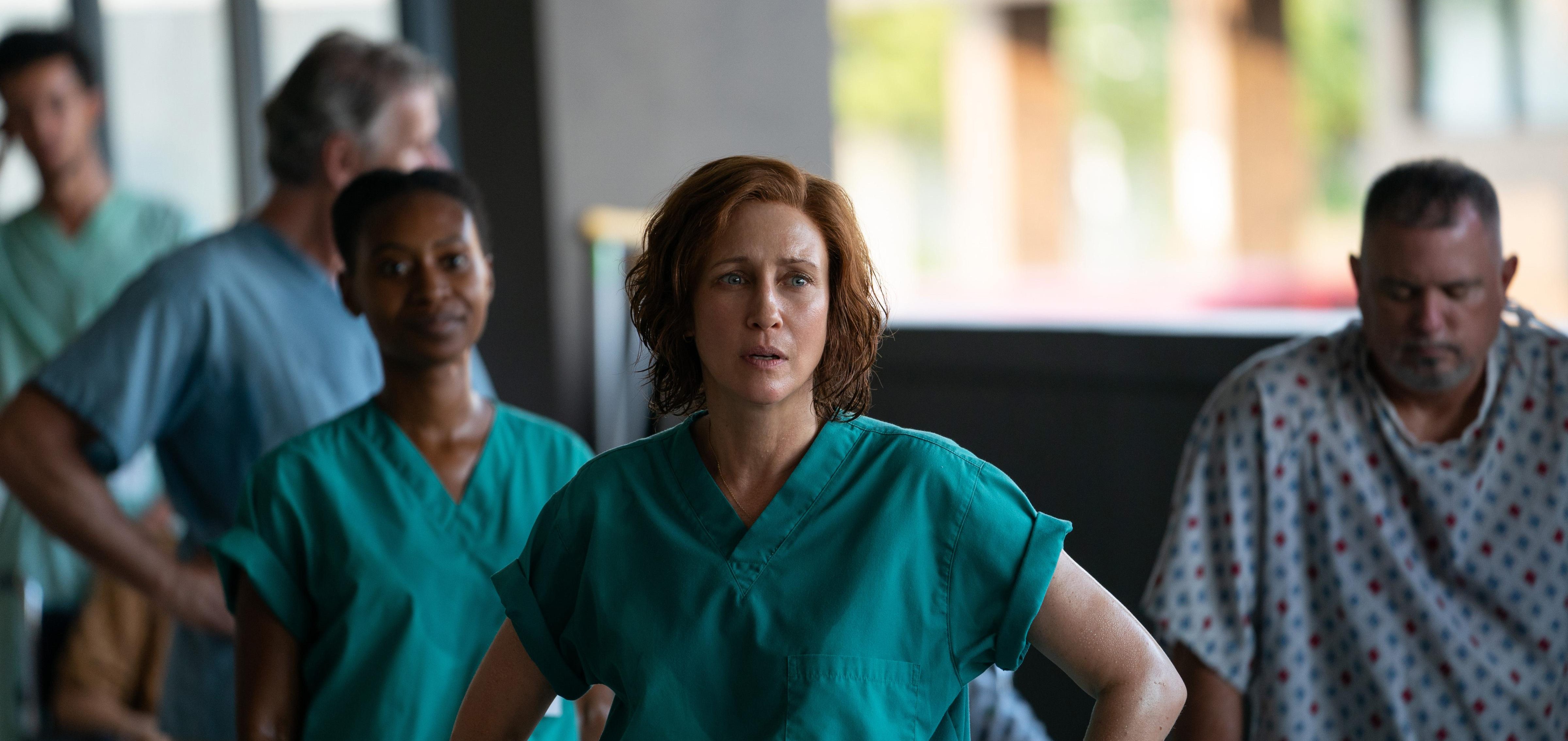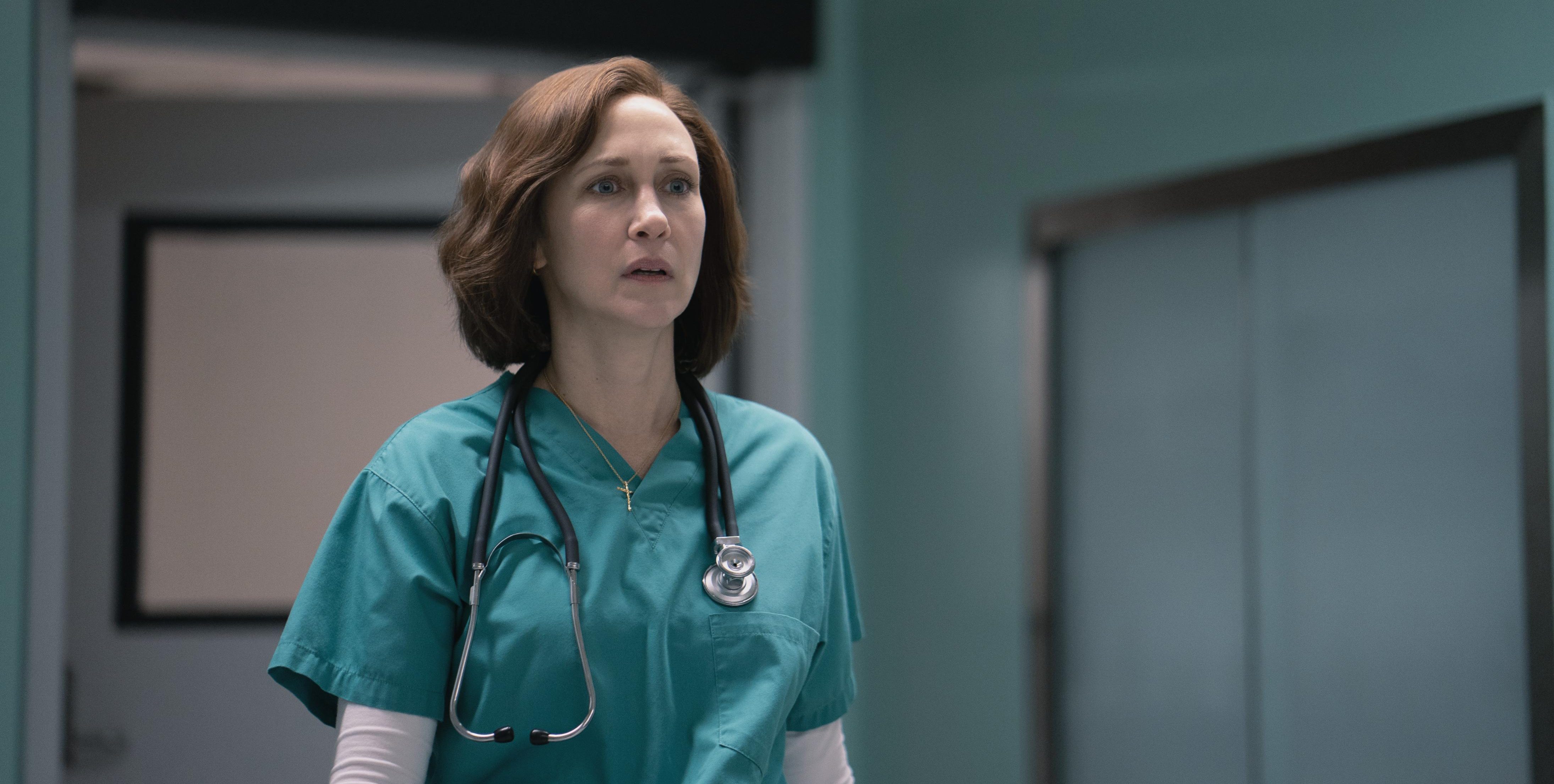Apple TV+’s medical drama ‘Five Days at Memorial’ revolves around the life-threatening challenges and obstacles faced by the patients and staff of Memorial Medical Center in the wake of Hurricane Katrina. While the city of New Orleans was flooded after the hurricane, around 2000 people got stuck in the hospital, awaiting evacuation. Upon the evacuation, forty-five dead bodies were discovered inside the hospital. The 2022 series progresses through the events that led to the death of those forty-five individuals. Since Hurricane Katrina and the aftermath of the same are real and part of American history, the viewers must be wondering whether the events that unravel at Memorial Hospital are also based on reality. Let us share the answer!
The Heartbreaking True Story Behind Five Days at Memorial
Yes, ‘Five Days at Memorial’ is based on a true story. The series is based on Sheri Fink’s non-fiction book ‘Five Days at Memorial: Life and Death in a Storm-Ravaged Hospital.’ The book details the events that happened in a New Orleans hospital named Memorial Medical Center (presently known as Ochsner Baptist Medical Center), where thousands of people, including patients, doctors, hospital staff, and families of the patients, got stuck due to the flood that happened as a result of Hurricane Katrina. From August 28, 2005, people were stuck in the hospital building and had to suffer the loss of power, lack of air conditioning, and floodwater seeping inside the hospital till the evacuations were completed on September 1, 2005.

Even though thousands of people were stuck in the hospital, evacuation attempts only started on the third day with occasional boat or helicopter picking up patients. Doctors of Memorial hospital also had to take care of the severely ill patients of LifeCare Hospitals, which operated on the seventh floor of the hospital building. During the same time, Dr. Anna Pou reportedly injected several critically ill patients with morphine to ease their pain. On September 11, 2005, ten days after the evacuation, mortuary workers discovered 45 dead bodies in the Memorial hospital.
After the discovery of the dead bodies, a LifeCare lawyer claimed that a Memorial doctor and nurses administered lethal doses of medicines to nine LifeCare patients. After autopsies, morphine was found in the same nine dead patients. A forensic pathologist hired by the Louisiana attorney general concluded that the deaths of four LifeCare patients were homicides. As per Sheri Fink, who wrote the source text of the show, the investigators eventually came to believe that as many as two dozen patients were euthanized at Memorial during the five days. In July 2006, doctor Anna Pou and nurses Cheri Landry and Lori Budo were arrested and charged with second-degree murder in connection with the deaths of four patients.
When Anna Pou was alleged of having killed patients, she started to defend herself and her two colleagues. “I did not murder those patients. […] I’ve spent my entire life taking care of patients. I have no history of doing anything other than good for my patients. I do the best of my ability. Why would I suddenly start murdering people? This doesn’t make sense,” Pou told Morley Safer for ’60 Minutes.’ “I do not believe in euthanasia. I don’t think that it’s anyone’s decision to make when a patient dies. However, what I do believe in is comfort care. And that means that we ensure that they do not suffer pain,” she added.
As per reports, Orleans Parish Coroner Frank Minyard had to classify the cause of death as “undetermined” since the evidence didn’t allow him to conclude the deaths as homicides or deaths due to natural causes. The classification seemingly favored Anna Pou’s case. In March 2007, a state grand jury was sworn in for the sake of the case. The district attorney’s office readied a 10-count bill of indictment against Pou, which included one count of second-degree murder of Emmett Everett and nine counts of the lesser conspiracy to commit second-degree murder of each of the nine patients who died in LifeCare Hospitals.
On July 24, 2007, the grand jury did not indict Pou on any of the counts prepared by the district attorney’s office. As per reports, the State of Louisiana then paid Pou’s legal fees of over $450,000.
Read More: Best Medical Shows on Netflix


You must be logged in to post a comment.